How to Grow Medicinal Herbs at Home
- January 22, 2025
- 0 comment
Have you ever wondered how you can enhance your wellness routine by growing your own medicinal herbs at home? Many people are looking for natural ways to boost their health, and growing medicinal herbs is a convenient and sustainable solution.
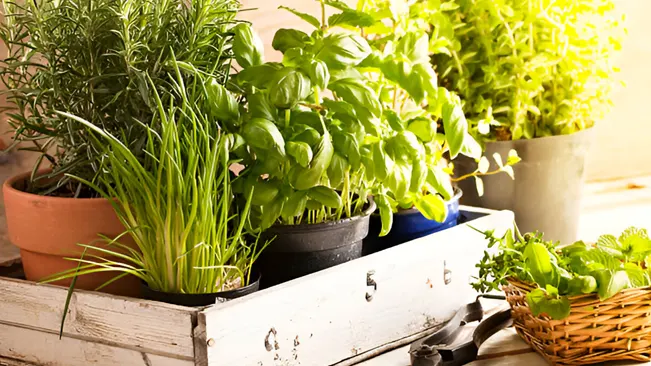
The process is straightforward, and with a little guidance, anyone can turn their home garden into a source of natural remedies.
What Are Medicinal Herbs?
Medicinal herbs are plants that have been used for centuries in traditional medicine to treat a variety of ailments. These herbs contain compounds that can help improve physical and mental health. Examples include lavender (for relaxation), peppermint (for digestive issues), and echinacea (to boost the immune system). Growing these herbs at home allows you to have easy access to fresh, natural treatments whenever you need them.
Why Grow Medicinal Herbs at Home?
The reasons for growing medicinal herbs at home are plentiful. First, it gives you control over how the herbs are cultivated, meaning no pesticides or harmful chemicals will be used. Second, it’s cost-effective buying fresh or dried herbs can add up over time. Third, tending to plants can improve mental health, providing a calming and rewarding hobby. Moreover, having fresh herbs on hand ensures you can make quick infusions or poultices when needed.
Factors Affecting Successful Growth
Before you start planting, it’s important to consider a few key factors to ensure your herbs thrive.
Sunlight
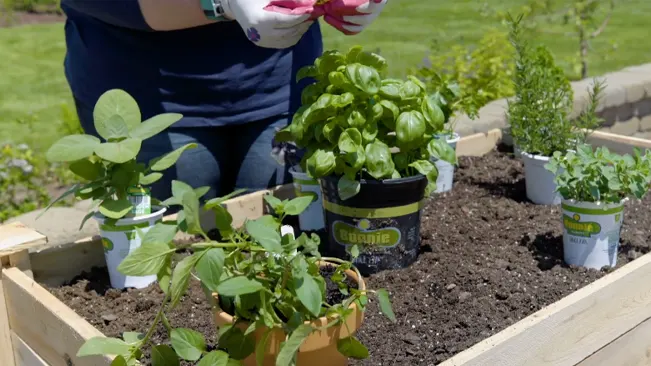
Most medicinal herbs need a lot of sunlight about 6 to 8 hours per day. Herbs like basil, thyme, and rosemary prefer full sun. However, some herbs like mint or lemon balm can tolerate partial shade. Be sure to place your herb garden in a location that suits the light needs of the plants you choose.
Soil Quality
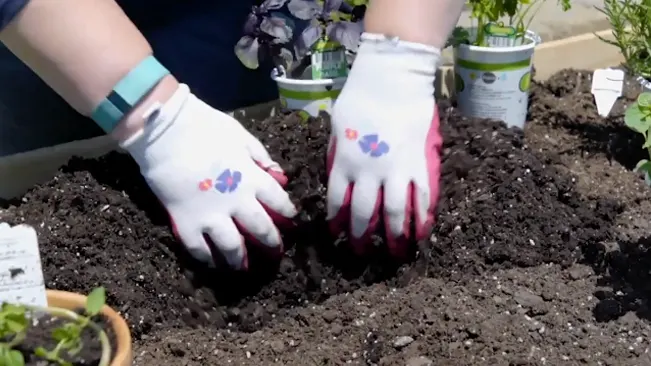
Medicinal herbs generally prefer well-draining soil with a pH between 6.0 and 7.0. Adding organic matter like compost can improve soil quality. Chamomile, for instance, thrives in slightly sandy soils, while marshmallow root prefers a moist, loamy soil.
Watering
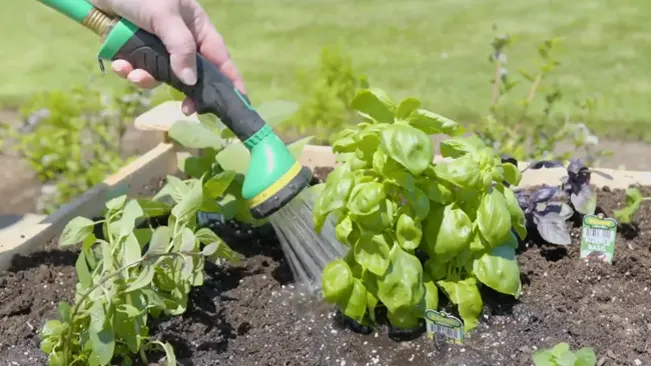
Herbs vary in their water requirements. Mediterranean herbs like oregano and sage prefer dry conditions and require less frequent watering, whereas herbs like echinacea and marshmallow need consistently moist soil. Overwatering can lead to root rot, so understanding each plant’s moisture needs is crucial.
Types of Medicinal Herbs to Grow at Home
There are numerous medicinal herbs you can grow, each with unique benefits. Here are some common ones and their uses:
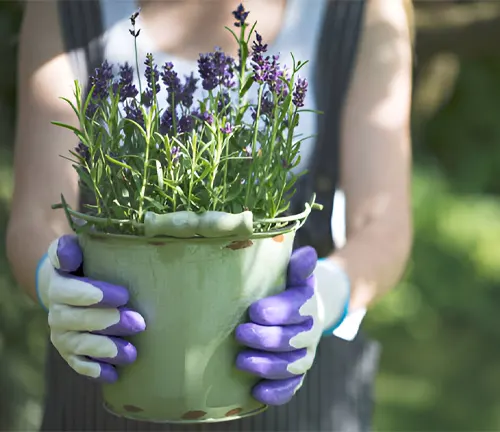
Lavender
Known for its calming properties, lavender is often used to reduce stress and anxiety. It grows best in sunny, well-drained soil.
Peppermint
This herb is widely used to soothe digestive issues. It grows quickly and can become invasive, so it’s best grown in containers.
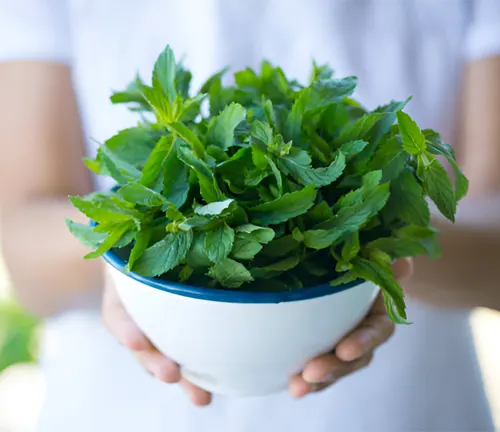
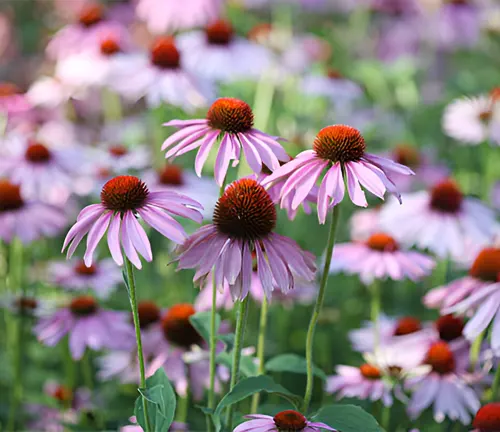
Echinacea
Often used to boost the immune system, echinacea thrives in well-drained soil and sunny areas. It’s particularly helpful in reducing the duration of colds.
Calendula
Known for its anti-inflammatory properties, calendula is used in salves and creams to treat minor cuts and skin irritations.
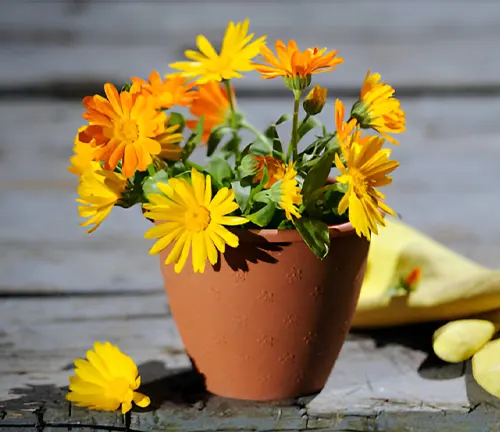
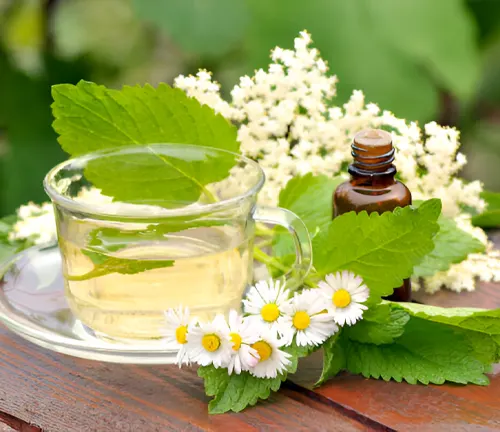
Chamomile
Famous for its calming effects, chamomile tea can help with sleep and relaxation. It prefers light, sandy soil and moderate sunlight.
Practical Tips for Growing Medicinal Herbs
To ensure success in your herb garden, follow these practical tips:
- Start with a Plan: Decide which herbs you want to grow based on your needs and the space available. If you have limited room, container gardening is an excellent option.
- Choose the Right Containers: For container gardening, choose pots with good drainage holes. Herbs like thyme and basil thrive in pots, while larger plants like echinacea may need more space.
- Harvest Regularly: Regular harvesting encourages herbs to grow back fuller and bushier. For example, cutting basil and oregano leaves will result in more vigorous plants.
- Use Organic Practices: Avoid chemical pesticides. Instead, use natural pest deterrents like neem oil or introduce beneficial insects like ladybugs to keep harmful pests at bay.
- Dry and Store Herbs Properly: Dry your herbs in a well-ventilated area away from direct sunlight. Store dried herbs in airtight containers to preserve their potency.
Secondary Considerations
Apart from the basic growing requirements, it’s important to remember:
- Herb Compatibility: Some herbs grow better together than others. For example, basil pairs well with oregano and rosemary, but avoid planting it near sage.
- Indoor vs. Outdoor Growing: While most medicinal herbs prefer outdoor conditions, you can also grow them indoors. If growing indoors, make sure your herbs receive enough sunlight or supplement with grow lights.
- Pruning and Maintenance: Regularly check for pests and diseases. Herbs like mint can become invasive, so frequent pruning is necessary to prevent overgrowth.
Conclusion
Growing medicinal herbs at home is an excellent way to support your health naturally while also engaging in a rewarding gardening activity. Whether you’re looking to reduce stress, improve digestion, or boost your immune system, there’s an herb for nearly every need. By paying attention to sunlight, soil, and water requirements, as well as choosing the right herbs for your climate, you can create a flourishing herb garden. Begin small, harvest regularly, and enjoy the benefits of homegrown herbal remedies.
Frequently Asked Questions (FAQ)
- What are the easiest medicinal herbs to grow for beginners?
Some easy-to-grow medicinal herbs include mint, basil, chamomile, lavender, and oregano, which require minimal care. - Can I grow medicinal herbs indoors?
Yes, many herbs like basil, mint, and parsley can be grown indoors as long as they get enough sunlight or are supplemented with grow lights. - How much sunlight do medicinal herbs need?
Most herbs need 6 to 8 hours of direct sunlight. Herbs like lavender and rosemary prefer full sun, while mint can tolerate partial shade. - What type of soil is best for medicinal herbs?
Well-draining soil with a neutral pH (6.0 to 7.0) is ideal for most medicinal herbs. Adding compost can enhance soil quality and drainage. - How often should I water my herbs?
Watering depends on the herb. Mediterranean herbs like rosemary prefer drier conditions, while echinacea needs more moisture. Avoid overwatering. - When should I harvest my medicinal herbs?
Harvest herbs just before they flower, when their oils are most concentrated. Snip leaves or flowers, avoiding over-harvesting to allow the plant to regrow. - How do I store harvested herbs?
Dry herbs in a cool, dark, and well-ventilated area. Once dried, store them in airtight containers to retain their potency.

Kristine Moore
Forestry AuthorI'm Kristine Moore, a seasoned garden landscaping professional with over 30 years of experience. My extensive career has been dedicated to transforming outdoor spaces into stunning, sustainable landscapes. With a deep understanding of horticulture, design principles, and environmental stewardship, I have become a respected figure in the field, known for creating harmonious, visually appealing, and eco-friendly gardens. My commitment to excellence and continuous learning in landscaping trends and techniques has solidified my reputation as an expert in garden design and implementation.




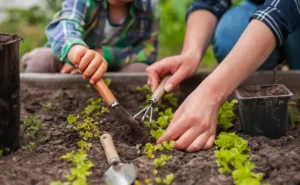








Leave your comment